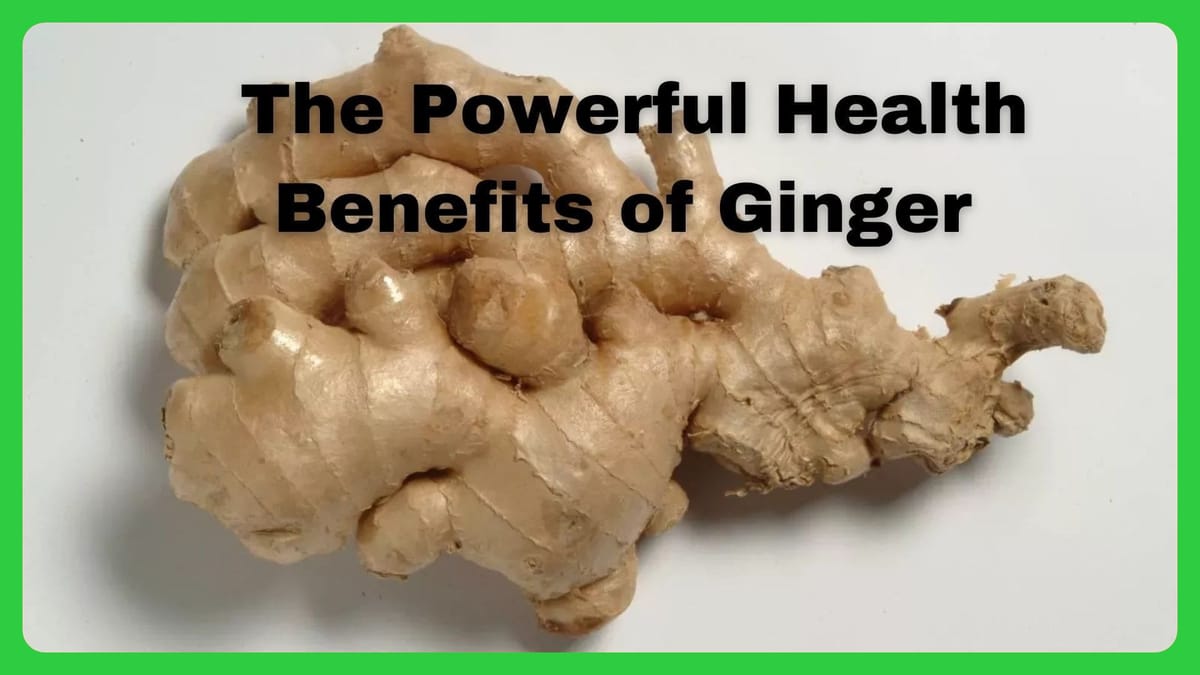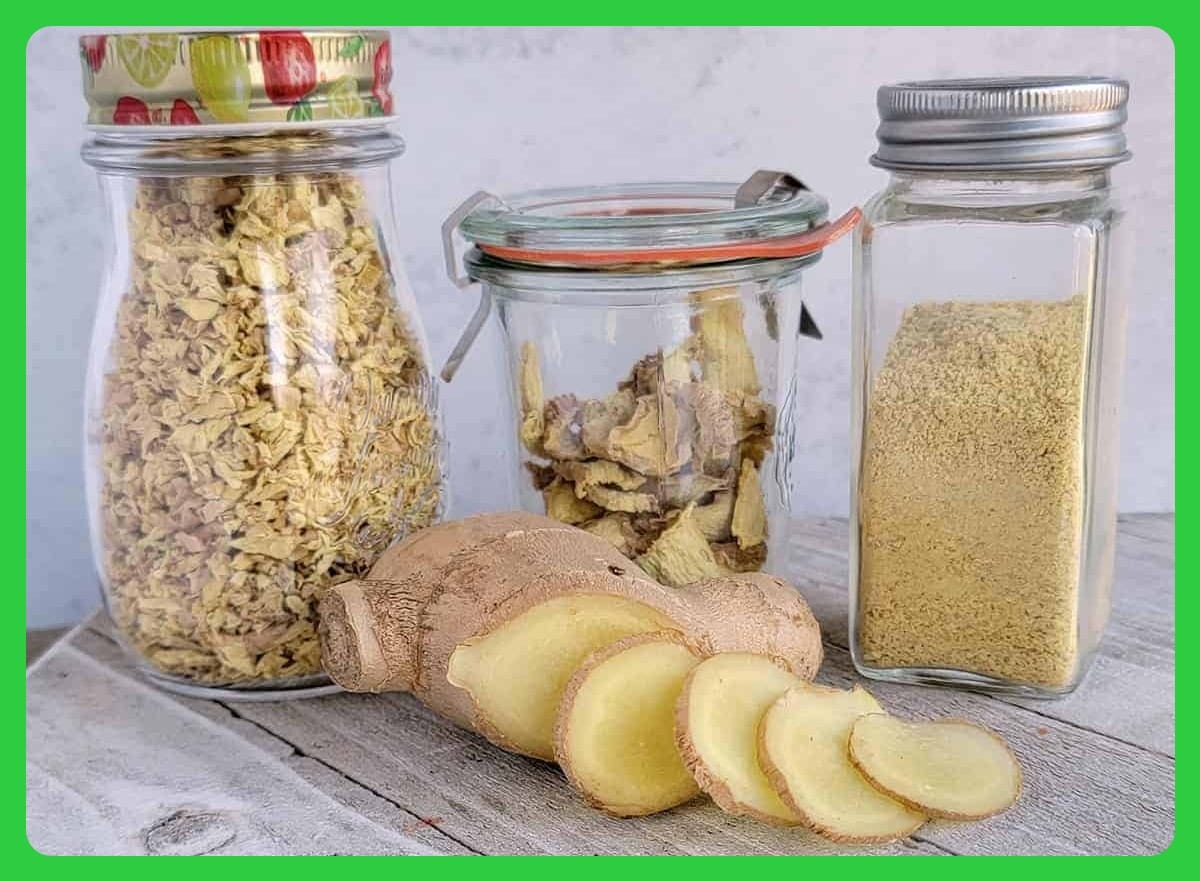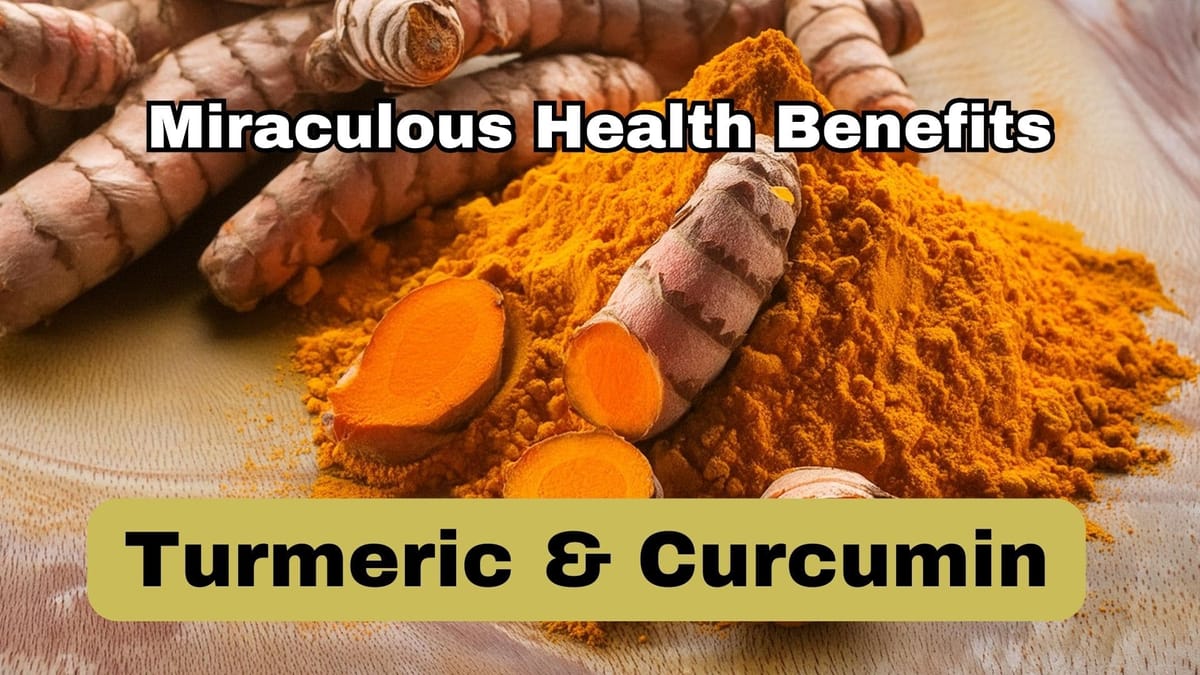The Powerful Health Benefits of Ginger
According to the National Library of Medicine, ginger can be as effective as some pain medications like ibuprofen and mefenamic acid. It may be safer than NSAIDS with fewer side effects.

According to the National Library of Medicine, ginger can be as effective as some pain medications, like ibuprofen and mefenamic acid, for treating pain. Ginger may also be safer than nonsteroidal anti-inflammatory drugs (NSAIDs), with fewer gastric and kidney side effects.
In the vibrant world of natural healing, few ingredients have captured humanity's attention quite like ginger. With its distinctive spicy kick and aromatic essence, this root has been revered as a culinary treasure and a powerful medicinal ally for millennia. From ancient Chinese medicine to modern scientific research, ginger continues to prove itself as nature's remarkable health booster, offering an impressive array of benefits that may revolutionize your approach to wellness.
What Is Ginger? Understanding This Ancient Root
Scientifically known as Zingiber officinale, ginger belongs to the same family as turmeric and cardamom. This knobby, tan-coloured root has been a cornerstone of traditional medicine for over 5,000 years, originating in Southeast Asia before spreading globally through ancient trade routes.
Today, you'll find ginger in various forms, each offering its unique advantages:
- Fresh ginger root: The most potent form, ideal for cooking and tea
- Dried ginger: A concentrated version perfect for spicing dishes
- Powdered ginger: Convenient for baking and supplementation
- Ginger oil: Used in aromatherapy and topical applications
- Ginger juice: Popular in wellness shots and smoothies
The Impressive Nutritional Profile of Ginger
What makes ginger such a powerful health ally? Its secret lies in its rich composition of bioactive compounds. The star player is gingerol, a powerful anti-inflammatory and antioxidant compound that gives ginger its characteristic bite. Beyond this, ginger contains:
- Essential vitamins: B6, C, and E
- Minerals: Potassium, copper, magnesium, and manganese
- Beneficial compounds: Shogaols, paradols, and zingerone
Just 80 calories per 100 grams, ginger packs an impressive nutritional punch without weighing down your dietary goals.
Science-Backed Health Benefits of Ginger
Here are some studies that compare ginger to pain medications:
**
Ginger vs. placebo: A review of six studies found that ginger was more effective than a placebo for reducing pain severity. Ginger vs. mefenamic acid: A review found no significant difference between ginger and mefenamic acid for treating pain. Ginger vs. knee osteoarthritis: A study found that it relieved pain in patients with knee osteoarthritis. Ginger vs. migraine attacks:A trial found that adding ginger to NSAIDs may help treat migraine attacks.
1. A Natural Anti-Inflammatory Powerhouse
Chronic inflammation lies at the root of many modern diseases. Ginger's active compounds, particularly gingerols, effectively combat inflammation. Research shows that regular ginger consumption can:
- Reduce muscle pain after exercise
- Ease joint stiffness in arthritis patients
- Lower inflammatory markers in the blood
2. Your Digestive System's Best Friend
Ginger has earned its reputation as a digestive aid through centuries of use and modern scientific validation. It helps by:
- Speeding up stomach emptying
- Reducing nausea and vomiting during pregnancy
- Easing chemotherapy-related nausea
- Calming digestive discomfort and bloating
3.Ginger and Diarrhoea
- Ginger is a well-known natural treatment for diarrhoea. It can help treat some of the causes of diarrhoea and relieve gastrointestinal symptoms. Popular preparations that can be used as home remedies include ginger tea and ginger ale.
- Ginger is rich in a variety of beneficial plant chemicals called phytochemicals.
- Ginger may also relieve other gastrointestinal problems, such as food poisoning
4. Blood Sugar Balance and Diabetes Management
For those concerned about diabetes or blood sugar control, ginger offers promising benefits:
- Reduces fasting blood sugar levels
- Improves insulin sensitivity
- Lowers HbA1c levels in type 2 diabetes patients
- Helps prevent diabetic complications

5. Weight Management Support
Looking to maintain a healthy weight? Ginger could be your natural ally:
- Increases thermogenesis (calorie burning)
- Reduces feelings of hunger
- Helps prevent fat accumulation
- Supports healthy metabolism
6. Heart Health Guardian
Cardiovascular health benefits from ginger consumption through:
- Reduced LDL (bad) cholesterol levels
- Lower triglycerides
- Improved blood pressure regulation
- Enhanced circulation
7. Powerful Antioxidant Protection
Ginger's antioxidant properties help protect your cells from damage by:
- Neutralizing harmful free radicals
- Reducing oxidative stress
- Supporting healthy aging
- Protecting cellular DNA

8. Cancer-Fighting Potential
While research is ongoing, studies suggest ginger may:
- Inhibit the growth of certain cancer cells
- Reduce inflammation associated with cancer development
- Help manage chemotherapy side effects
9. Support Immune Function
Turmeric and ginger are used by many who believe they will enhance immune function and sidestep cold or flu symptoms.
- Ginger, in particular, may possess powerful immune-boosting properties. One test-tube study indicated that fresh ginger was effective against human respiratory syncytial virus (HRSV), which can cause respiratory tract infections in infants, children, and adults).
- Another test-tube study found that ginger extract blocked the growth of several strains of respiratory tract pathogens.
- A mouse study also noted that taking ginger extract blocked the activation of several pro-inflammatory immune cells and decreased symptoms of seasonal allergies, such as sneezing.
More research is needed to determine how each can affect human immune health when consumed in normal food amounts.

How to Make Ginger Part of Your Daily Routine
Delicious Ways to Consume Ginger:
- Morning Wellness Shot: Blend fresh ginger with lemon and honey
- Ginger Tea: Steep fresh ginger in hot water for 10 minutes
- Smoothie Boost: Add fresh or powdered ginger to your favourite smoothie
- Stir-fry Spice: Incorporate minced ginger into Asian-inspired dishes
- Baked Goods: Use powdered ginger in cookies, cakes, or bread
Recommended Daily Intake
- Fresh ginger: 1-2 inches (2-4 grams) per day
- Powdered ginger: 1-4 grams daily
- Ginger tea: 2-3 cups daily
Important Precautions and Considerations
While ginger is generally safe for most people, be aware of these possible side effects:
- Mild heartburn or digestive discomfort
- Light-headedness (in high doses)
- Increased bleeding tendency
Exercise Caution if You:
- Take blood-thinning medications
- Have diabetes medications
- Are pregnant (consult healthcare provider)
- Have gallstones
- Are scheduled for surgery
Embracing Ginger's Healing Power
The evidence is clear: ginger is more than just a flavorful spice – it's a natural medicine cabinet in a root.
Remember, while ginger is powerful, it's most effective as part of a balanced, healthy lifestyle. Combined with good nutrition, regular exercise, and proper rest, ginger can be your ally in achieving optimal health and vitality.







